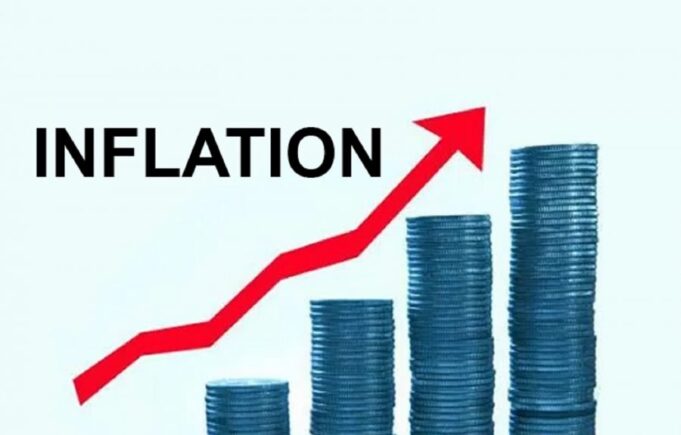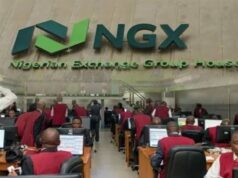The National Bureau of Statistics (NBS) has declared that Nigeria’s headline inflation rate increased to 31.70 per cent in February 2024.
The NBS said this in its Consumer Price Index (CPI) and Inflation Report for February, which was released on Friday, March 15, 2024.
According to the report, the figure is 1.80 per cent points higher compared to the 29.90 per cent recorded in January 2024.
The NBS said on a year-on-year basis, the headline inflation rate in February 2024 was 9.79 per cent higher than the rate recorded in February 2023 at 21.91 per cent.
It noted that on a month-on-month basis, the headline inflation rate in February 2024 was 3.12 per cent, which was 0.48 per cent higher than the rate recorded in January 2024 at 2.64 per cent.
“This means that in February 2024, the rate of increase in the average price level is more than the rate of increase in the average price level in January 2024,” the NBS stated.
The NBS said the increase in the headline index for February 2024 on a year-on-year basis and month-on-month basis was attributed to the increase in some items in the basket of goods and services at the divisional level.
It said these increases were observed in food and non-alcoholic beverages, housing, water, electricity, gas, fuel, clothing and footwear, and transport.
Others were furnishings, household equipment and maintenance, education, health, miscellaneous goods and services, restaurants and hotels, alcoholic beverage, tobacco and kola, recreation and culture, and communication.
It said the percentage change in the average CPI for the 12 months ending February 2024 over the average of the CPI for the previous corresponding 12-month period was 26.18 per cent.
“This indicates a 6.31 per cent increase compared to 19.87 per cent recorded in February 2023,” the NBS added.
The NBS stated that the food inflation rate in February 2024 increased to 37.92 per cent on a year-on-year basis, which was 23.57 per cent higher compared to the rate recorded in February 2023 at 24.35 per cent.
The NBS noted that rise in food inflation on a year-on-year basis was caused by increases in prices of bread and cereals, potatoes, yam and other tubers, fish, oil and fat, meat, fruit, coffee, tea, and cocoa.
‘Inflation, naira devaluation’: Lafarge records 4.7% loss in 2023
It said on a month-on-month basis, the food inflation rate in February was 3.79 per cent, which was a 0.58 per cent increase compared to the rate recorded in January 2024 at 3.21 per cent.
It stated that the rise in food inflation on a month-on-month basis was caused by an increase in the average prices of bread and cereals, potatoes, yam and other tubers, fish, coffee, tea, and cocoa.
The NBS said all items less farm produce and energy or core inflation, which excludes the prices of volatile agricultural produce and energy, stood at 25.13 per cent in February on a year-on-year basis.
It added: “This increased by 6.76 per cent compared to 18.37 per cent recorded in February 2023.
“The exclusion of the PMS is due to the deregulation of the commodity by removal of subsidy.”
The NBS noted that on a year-on-year basis, food inflation was highest in Kogi State at 46.32 per cent, followed by Rivers State at 44.34 per cent, and Kwara State at 43.05 per cent.
Inflation: CBN raises PVS limit to 15%
“Bauchi at 31.46 per cent, followed by Plateau at 32.56 per cent and Taraba at 33.23 per cent recorded the slowest rise in food inflation on a year-on-year basis,” it said.
The NBS, however, said on a month-on-month basis, food inflation was highest in Adamawa State at 5.61 per cent, followed by Yobe State at 5.60 per cent, and Borno State at 5.60 per cent.
According to NBS, Cross River State at 2.08 per cent, followed by Niger State at 2.56 per cent, and Abuja at 2.60 per cent recorded the slowest rise in inflation on a month-on-month basis.
- 519 bag first class as FUTA graduates 6,405 students - November 23, 2024
- Stock market closes with N99bn loss - November 23, 2024
- Edo govt declares over 200 vehicles missing, recovers diverted palliatives - November 23, 2024










